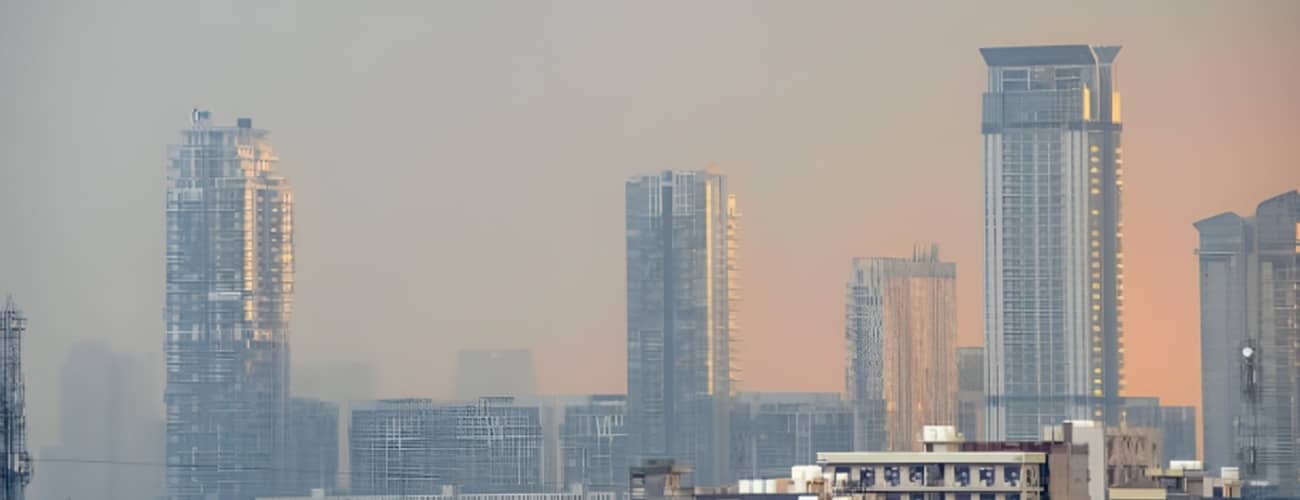Top Factors to Consider When Investing in Mumbai Real Estate

Mumbai, often dubbed as the financial capital of India, boasts a real estate market that is both dynamic and lucrative. With its ever-expanding skyline and growing population, investing in Mumbai's real estate sector can offer substantial returns. However, navigating this bustling market requires careful consideration of various factors to ensure a successful investment venture.
Introduction to Mumbai Real Estate
Mumbai's real estate market is renowned for its resilience and profitability. From luxurious residential skyscrapers to bustling commercial hubs, the city offers a diverse range of investment opportunities. Investors are drawn to Mumbai not only for its high rental yields but also for its potential for long-term capital appreciation.
Property Location
In real estate, location plays a pivotal role in determining the desirability and value of a property. In Mumbai, factors such as proximity to business districts, transportation hubs, and social amenities greatly influence investment decisions. Areas like Bandra, Worli, and Powai are known for their upscale residential developments and thriving commercial centers.
Mumbai Property Type Selection
Investors must carefully evaluate their investment goals and risk tolerance when selecting the type of property to invest in. While residential properties offer stable rental income, commercial properties may yield higher returns but come with greater volatility. Mixed-use developments provide a balanced approach, catering to both residential and commercial tenants.
Real Estate Budget and Affordability
Setting a realistic budget is crucial when investing in Mumbai real estate. With properties ranging from affordable housing to ultra-luxurious penthouses, investors must assess their financial capacity and explore financing options such as home loans and mortgage schemes.
Mumbai Properties Market Trends and Analysis
Staying informed about market trends and dynamics is essential for making informed investment decisions. Mumbai's real estate market experiences periodic fluctuations influenced by factors such as economic conditions, regulatory changes, and geopolitical events. Conducting thorough market analysis can help investors identify emerging opportunities and mitigate risks.
Infrastructure Development
Infrastructure plays a pivotal role in shaping the value and demand for real estate in Mumbai. The city's ongoing infrastructure projects, such as metro rail expansions and road network improvements, enhance connectivity and accessibility, thereby driving property demand in surrounding areas.
Legal Considerations of Properties
Navigating the legal intricacies of real estate transactions in Mumbai requires diligence and expertise. Investors must ensure compliance with regulatory requirements, conduct due diligence on property titles, and verify the authenticity of legal documents to safeguard their investments.
Rental Yield and ROI
Calculating rental yield and return on investment (ROI) is essential for assessing the profitability of real estate investments. Factors such as rental rates, vacancy rates, and property appreciation contribute to the overall returns generated from an investment property.
Developer Reputation and Track Record
Choosing reputable developers with a proven track record is imperative for minimizing investment risks. Established developers with a history of delivering quality projects instill confidence in investors and ensure timely completion and handover of properties.
Amenities and Facilities
Access to amenities and facilities greatly enhances the desirability of a property and influences tenant retention. From recreational facilities to healthcare centers and educational institutions, proximity to essential amenities adds value to real estate investments in Mumbai.
Risk Management Strategies
Implementing risk management strategies is crucial for safeguarding investments against unforeseen events. Diversification across different asset classes and geographical locations, as well as the use of financial instruments such as insurance and derivatives, can help mitigate risks associated with Mumbai real estate investment.
Environmental Factors
Considering environmental factors such as air and water quality is increasingly important in real estate investment decisions. Sustainable development practices and green initiatives not only contribute to environmental conservation but also enhance the long-term value and attractiveness of properties.
Tax Implications
Understanding the tax implications of real estate investment is essential for optimizing returns and minimizing tax liabilities. Investors must familiarize themselves with applicable taxes such as property tax, capital gains tax, and Goods and Services Tax (GST) to effectively manage their investment portfolios.
Future Prospects
Despite occasional market challenges, Mumbai's real estate sector continues to offer promising prospects for investors. With rapid urbanization and infrastructure development projects on the horizon, the city presents abundant opportunities for capital growth and wealth accumulation in the long term.
Conclusion
Investing in Mumbai real estate offers a myriad of opportunities for savvy investors seeking attractive returns and portfolio diversification. By considering factors such as location, property type, market trends, and legal considerations, investors can make informed decisions and capitalize on the city's vibrant real estate market.